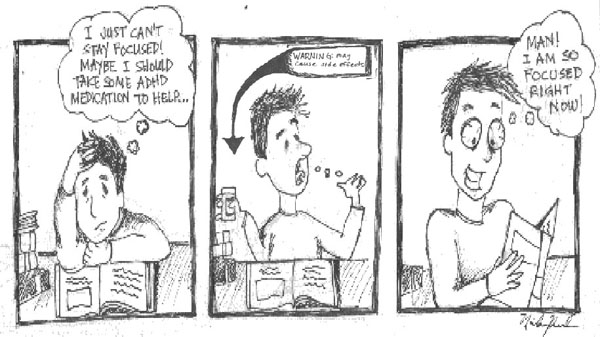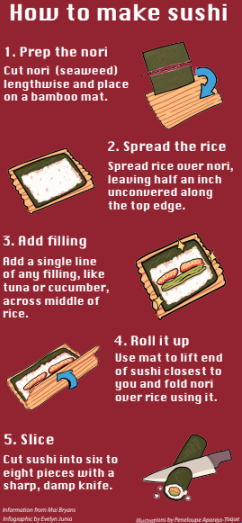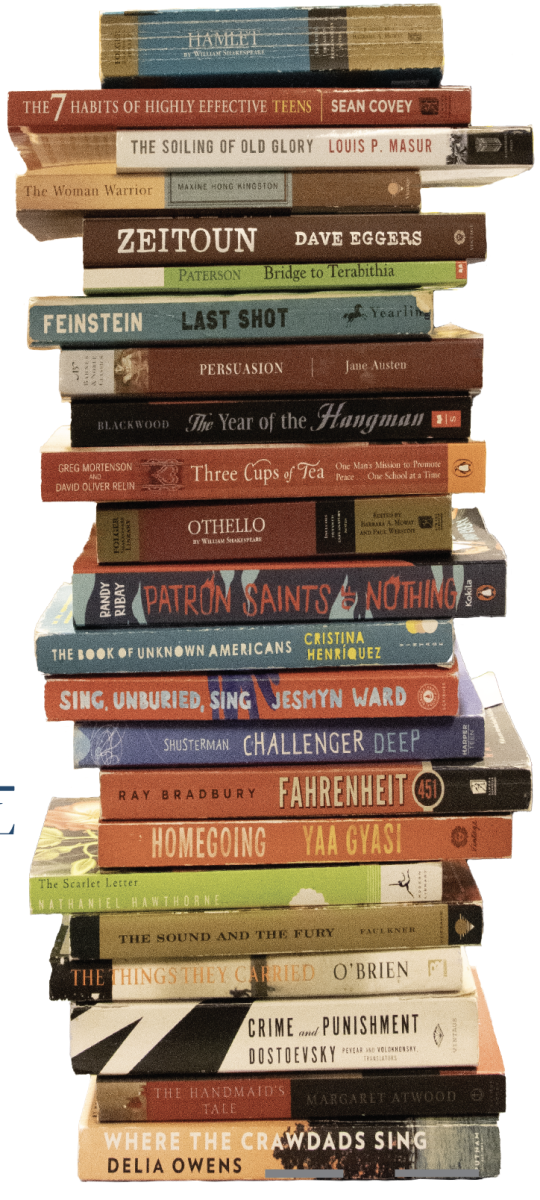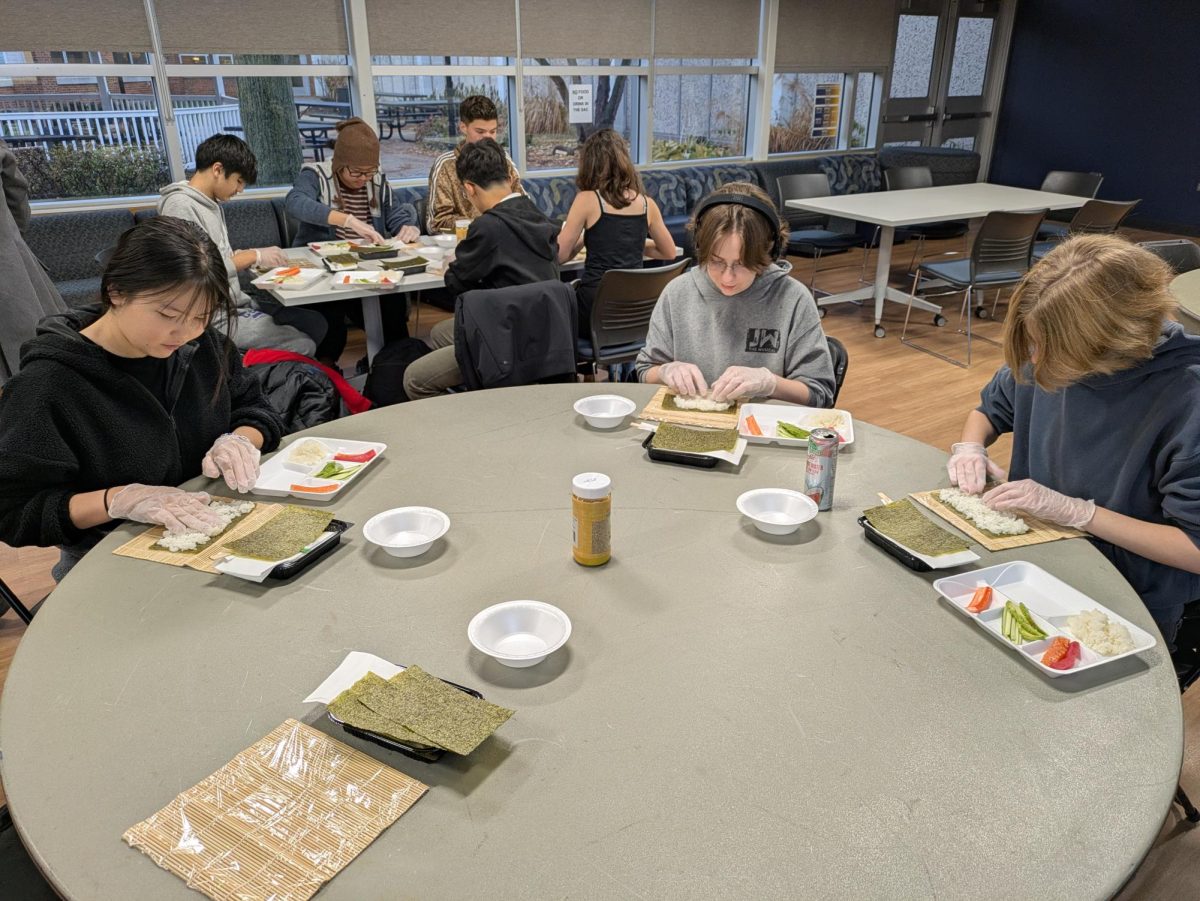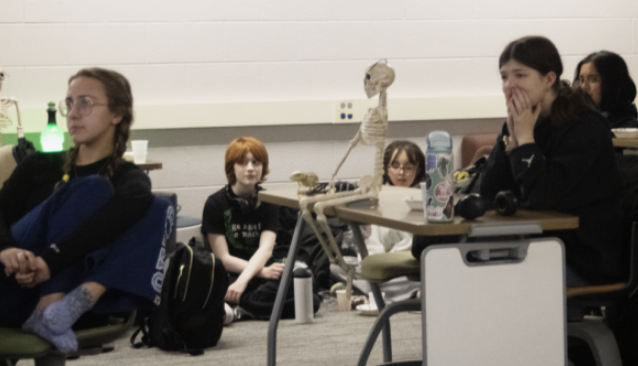To some students it may seem like a magic pill. It’s a drug, prescribed to those diagnosed with Attention Deficit Hyperactivity Disorder (ADHD), that has the potential to increase focus while studying, perform better on tests and possibly raise grades. But despite the seriousness of these medications and the disorder that requires them, many South students have illegally turned to these drugs for academic aid in times of stress, especially during finals week.
According to webmd.com, ADHD can occur in children when the attention controlling areas of the brain are less active compared to children without the disorder. Common symptoms caused by ADHD in children and teens include inattention and/or hyperactivity and impulsivity.
An Oracle-conducted survey revealed that of 328 South students surveyed, 65 percent said that they or someone they know has abused ADHD medications.
More than one in every seven children in the United States will be diagnosed with ADHD by the time they turn 18, and at least 70 percent of those are prescribed stimulant medication like Adderall or Concerta, according to the Center for Disease Control and Prevention.
Senior Sarah Roman* was diagnosed with Attention Deficit Disorder (ADD), a form of ADHD, and prescribed the medication Vyvanse at the end of her freshman year.
“I was initially embarrassed [by my diagnosis] because I was a freshman then so I hadn’t heard of Adderall or Vyvanse,” Roman said. “As time went on, the medication did help me in school, so it’s not a burden to have a prescription or to have ADD.”
Monitoring the Future (MTF), a program funded by the National Institute of Drug Abuse, determined that in 2008, amphetamine-based ADHD medications, including Adderall and Vyvanse, ranked third among 12th-graders for past-year illicit drug use.
Junior Emma Sanders* was diagnosed with ADHD when she was 3 years old and started dealing her medication to friends her freshman year after being prescribed medication in 8th grade.
“When I first got prescribed medication, I remember my doctor telling me that people are going to come up to me and ask me for my medicine,” Sanders said. “I always thought I wasn’t going to do it.”
According to Sanders, she first sold her medication to friends who wanted to use it for recreational purposes. Now, most of the people she sells to use it for academic purposes, such as studying for finals or taking the ACT.
“I usually give [my buyers] one to three pills, or as many as they need [to study],” Sanders said. “For my friends I try to be nice and charge $1.50 [per pill]. I get that I don’t make a big profit, but I feel guilty making a profit off of my friends.”
Contrary to Sanders, junior Tommy Howard* saw the financial opportunity in dealing once he was diagnosed with ADHD and seeked a prescription from his doctor to began selling his pills for extra cash.
“I don’t have ADHD, I just convinced my doctor that I did so I could [get a prescription for] Concerta,” Howard said. “I was short on money and I knew that people had sold it before, [which is why I started].”
Howard said he tries to make sure his buyers know how the medication may affect them, to ensure they’re satisfied and will return for more.
“Usually it’s just like I give [my medication] to [buyers] and they take it responsibly,” Howard said. “I always let them know the constraints of how much they should take at a time.”
Sophomore Stephanie Clay* said that she illegally takes ADHD medication for academic purposes. According to Clay, the competitive environment and usual academic success of South played a part in her decision to use these drugs.
“I know that [taking ADHD medication unprescribed] is a bad thing to do, but I think it goes hand in hand with the pressure that a lot of times kids are put under,” Clay said. “Especially at South because it is such a good school, and I know that I want to do well and do the best I can.”
In addition to Clay, senior Jennifer Wilson* also purchases ADHD medication illegally. Though she does not believe she has the condition, Wilson thinks that the medication is essential for her to be able to study for tests.
“I’ve never taken [ADHD medications] for a reason other than academic,” Wilson said. “I use it to really get myself to be able to concentrate on what I’m doing and not let myself be distracted or want to do other things.”
Wilson says that she is aware of the consequences that come along with buying prescription medication that is not hers, and that she does take precautions to ensure her safety.
“I never have [my dealer] drop [the medication] off at my house, I always go to buy it from them so my parents don’t know,” Wilson said. “I have a secret part of my wallet that I put them in and then I’m very careful to not leave them laying out on my desk or loose in my bag; they are always contained on my person.”
Although Wilson never buys the drugs on school grounds, Howard says it is rare for him to sell anywhere other than school.
“I kind of have places [at school] where I always go where I know nobody is watching,” Howard said. “I really try to keep a low reputation and a low number of people that I sell to because you know, the more people that know, the more the word gets out.”
Roman said that her parents are aware of the abuse that can take place with ADHD medications and they take extra precautions to ensure that she does not sell her prescription.
“My parents keep my medicine in a safe,” Roman said. “I get handed the pill every day.”
According to Dean Ronald Bean, the school handbook states the consequences for students involved in a drug purchase.
“The handbook and board policy is really clear that being involved in a drug purchase would result in a suspension for 10 days,” Bean said. “[In addition], we would review the case and then make a recommendation as to whether or not that student would be eligible to be expelled.”
Officer Mike Meier also explained that an exchange of prescription medication outside of school, whether it be selling, buying, delivering or possessing it, is considered a felony. The felony charge accompanies at least one year in jail and a large fine, while the punishment for cases involving students under the age of 18 would be determined by a judge in a juvenile court.
Social worker David Hartman assures kids that there are other strategies that can be used to deal with inattention. He suggests working on puzzles or crosswords to increase brain stimulation and help develop the ability to pay attention without medication.
Bean urges students who are abusing ADHD medications to seek an adult to talk to in order to help them find a solution.
“I would encourage [students abusing ADHD medications] to talk to their parents about the pressures that they’re feeling about school,” Bean said. “See if there are things that we can do here in the school or outside resources that we can use to help them.”
Previously unaware of the abuse of ADHD medication in the halls of South, Bean shared his fear for the students who are abusing these drugs.
“It really bothers me that I didn’t know that there are kids in our building that feel like in order to be successful [at South], they have to buy a drug from somebody else to help them concentrate and do better on finals,” Bean said. “School is important, I get it. Grades are important, but there are so many other things that are important. In the short term it might help [students], but in the long term there are going to be some consequences that they don’t even think about or know about right now and that’s the scariest part for me.”
*Names have been changed


